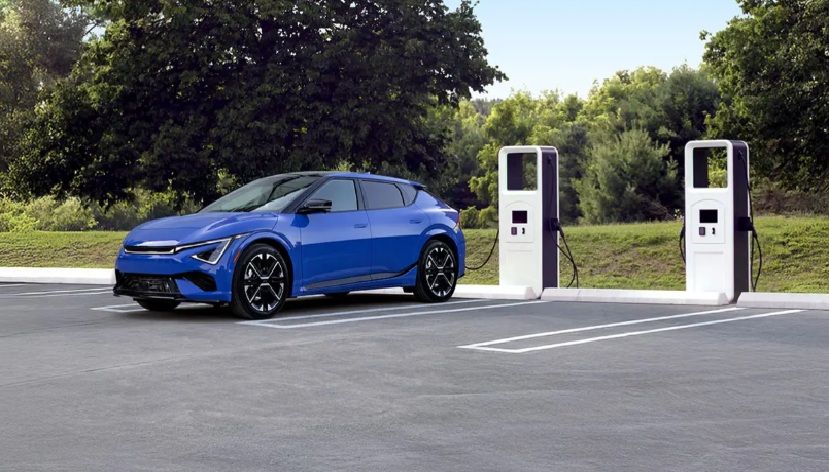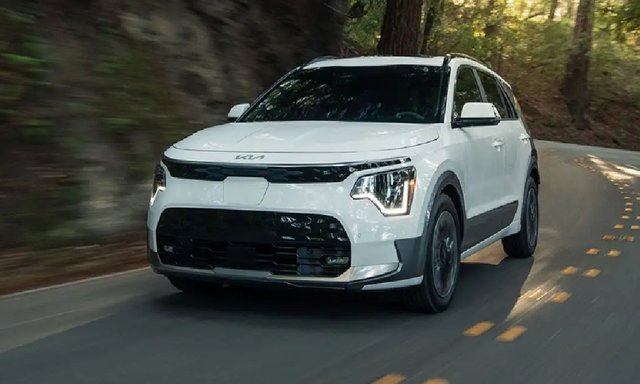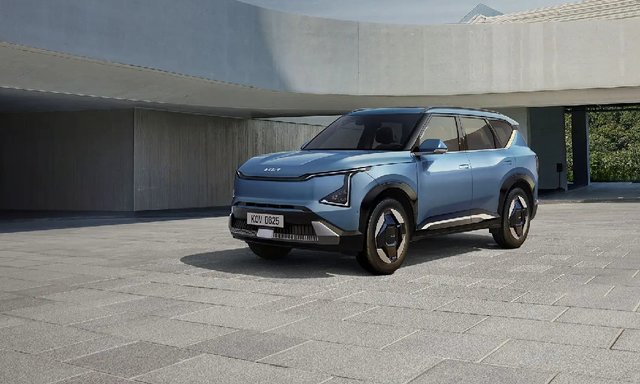Learn about the 2025 EV incentives in Canada with provincial rebates, eligibility criteria, and qualifying Kia models to maximize your savings
The Landscape of EV Incentives in Canada
Electric vehicle adoption in Canada has reached unprecedented levels, transforming our automotive landscape with sustainable transportation options. As governments commit to ambitious climate targets, EV incentive programs have become crucial tools for encouraging Canadians to make the switch to zero-emission vehicles. However, 2025 has brought significant changes to these incentive structures, most notably with the suspension of the federal Incentives for Zero-Emission Vehicles (iZEV) program earlier than its projected March 31, 2025 end date.
Due to depleted allocated funds, the unexpected pause of the iZEV program in January 2025 has left prospective EV buyers navigating a different financial landscape. The nationwide $5,000 federal rebate is no longer available for fully electric vehicles like the Kia EV9 and EV6. At the same time, incentives for plug-in hybrid vehicles (PHEVs), such as the Kia Sorento PHEV, have also been suspended.
Fortunately, provincial governments across Canada continue to offer substantial financial incentives for environmentally conscious drivers. These provincial programs vary significantly in their eligibility requirements, rebate amounts, and qualifying vehicle parameters. Understanding these differences is essential for potential EV buyers looking to maximize their savings while reducing their carbon footprint.
The Quebec Roulez Vert Program: 2025 Updates
Quebec maintains one of Canada’s most generous electric vehicle incentive frameworks, though the program underwent significant revisions effective February 1, 2025. The updated Roulez Vert program continues to support both battery electric vehicles (BEVs) and plug-in hybrid vehicles (PHEVs), with rebate amounts now more closely tied to vehicle price points and battery specifications.
For fully electric vehicles, Quebec residents can receive:
- Up to $4,000 for BEVs with a manufacturer’s suggested retail price (MSRP) under $60,000
- Up to $2,000 for BEVs with an MSRP between $60,000 and $70,000
- No rebate for vehicles exceeding the $70,000 threshold
The Roulez Vert program also maintains support for plug-in hybrid vehicles, with rebates structured according to battery capacity:
- Up to $2,000 for PHEVs equipped with battery capacity of 10 kWh or greater
- Up to $1,000 for PHEVs with battery capacity between 7 and 9.9 kWh
- No rebate eligibility for PHEVs with battery capacity below 7 kWh
These strategic reductions from previous rebate levels reflect Quebec’s evolving approach to EV incentivization, balancing continued support for adoption with fiscal responsibility as the EV market matures. The province’s tiered approach considers vehicle affordability and technological capabilities, emphasizing PHEVs with greater electric range potential.
British Columbia: CleanBC Go Electric Program
British Columbia’s CleanBC Go Electric Program has established itself as another leader in provincial EV support. The 2025 program introduces an income-based approach to determine rebate amounts, making electric vehicles more accessible across economic brackets.
Qualified BC residents can access:
- Up to $4,000 for new battery electric vehicles (income-dependent)
- Up to $2,000 for new plug-in hybrid vehicles
- Additional incentives for home charging infrastructure
The program maintains strict eligibility requirements regarding vehicle pricing. To qualify, vehicles must have a base model MSRP under $55,000, with higher trim levels capped at $70,000. This structure deliberately encourages the purchase of entry and mid-level electric vehicles rather than luxury models.
BC’s approach demonstrates an evolving philosophy in EV incentivization, with greater emphasis on economic inclusivity. The income-based rebate structure represents a progressive approach to ensure electric vehicles become accessible to a broader segment of the province’s population.
Atlantic Canada: Growing EV Support Networks
The Atlantic provinces have established increasingly robust incentive programs, recognizing the importance of regional support for EV adoption in areas with unique geographic and infrastructure challenges.
Nova Scotia: Electrify Nova Scotia Rebate Program
Nova Scotia’s rebate program offers substantial financial support with consideration for economic accessibility:
- $3,000 rebate for new battery electric vehicles
- $2,000 rebate for new plug-in hybrid vehicles
- An additional $500 rebate for low-income applicants
- Used electric vehicle rebates of $2,000 for BEVs and $1,000 for PHEVs
- Vehicle eligibility capped at $70,000 MSRP
The program’s inclusion of used vehicle rebates and additional support for low-income residents demonstrates Nova Scotia’s commitment to making electric vehicles accessible across economic brackets, addressing key barriers to adoption.
New Brunswick: Plug-In NB Rebate Program
New Brunswick offers one of the most generous provincial rebate structures:
- $5,000 for new battery electric vehicles
- $2,500 for new plug-in hybrid vehicles
- Vehicle eligibility capped at $70,000 MSRP
The substantial rebate amounts reflect New Brunswick’s strategic commitment to accelerating EV adoption, which is particularly important in a province with significant rural communities where range considerations and charging infrastructure present unique challenges.
Prince Edward Island: Universal EV Rebate
PEI’s Universal EV Rebate program stands out for its comprehensive approach and absence of MSRP restrictions:
- $5,000 rebate for new battery electric vehicles
- $2,500 rebate for new plug-in hybrid vehicles
- An additional $1,000 rebate when scrapping an older combustion engine vehicle
- No MSRP cap, allowing rebates on a wider range of vehicles
The province’s decision to forego MSRP restrictions represents a distinct approach, allowing residents greater vehicle selection flexibility while encouraging the transition to electric mobility. The additional incentive for removing older, higher-emission vehicles from the road demonstrates a holistic approach to reducing transportation-related carbon emissions.
Newfoundland and Labrador: EV Rebate Program
Newfoundland and Labrador’s program continues through March 15, 2025:
- $2,500 rebate for new battery electric vehicles
- $1,500 rebate for new plug-in hybrid vehicles
- Vehicle eligibility capped at $70,000 MSRP
The program’s defined end date highlights the importance of timing for prospective EV buyers in the province who wish to benefit from these incentives.
Eligible Kia Electric and Plug-In Hybrid Models in 2025
Kia’s expanding electric and electrified lineup offers Canadian consumers multiple options that qualify for provincial rebates. Understanding which models meet specific provincial eligibility requirements can help buyers maximize their savings.
Battery Electric Vehicles (BEVs)
Kia Niro EV
- Eligible for rebates in: Quebec, British Columbia, Nova Scotia, New Brunswick, Prince Edward Island, and Newfoundland and Labrador
- Features a practical crossover design with approximately 407 km of range
- Starting MSRP positions it within all provincial rebate thresholds
Kia EV6 (Base Trims)
- Eligible for rebates in: Quebec, British Columbia, Nova Scotia, New Brunswick, Prince Edward Island, and Newfoundland and Labrador
- Award-winning design with up to 499 km of range (trim-dependent)
- Base models fall within provincial MSRP caps
Kia Soul EV
- Eligible for rebates in: Quebec, British Columbia, Nova Scotia, New Brunswick, Prince Edward Island, and Newfoundland and Labrador
- Urban-friendly dimensions with up to 383 km of range
- Distinctive styling with practical space utilization
Plug-In Hybrid Vehicles (PHEVs)
Kia Sportage PHEV
- Eligible for rebates in: Quebec, British Columbia, Nova Scotia, New Brunswick, Prince Edward Island, and Newfoundland and Labrador
- Approximately 55 km of electric-only range
- Battery capacity exceeds minimum thresholds for maximum PHEV rebates
Kia Sorento PHEV
- Eligible for rebates in: Quebec, British Columbia, Nova Scotia, New Brunswick, Prince Edward Island, and Newfoundland and Labrador
- Three-row SUV practicality with approximately 51 km of electric range
- Combines family-friendly space with reduced emissions
Kia Niro PHEV
- Eligible for rebates in: Quebec, British Columbia, Nova Scotia, New Brunswick, Prince Edward Island, and Newfoundland and Labrador
- Up to 58 km of electric-only range
- Efficient crossover design with versatile cargo capacity
Beyond Rebates: The Total Cost of EV Ownership
While provincial rebates significantly reduce initial purchase costs, the total cost of EV ownership extends beyond the purchase price. Prospective buyers should consider various factors that influence the long-term economics of electric vehicle ownership:
- Energy Savings: Electric vehicles typically cost 60-80% less per kilometre than internal combustion vehicles, with electricity prices varying by province. Quebec and British Columbia offer some of Canada’s lowest electricity rates, enhancing the economic case for EVs in these provinces.
- Maintenance Benefits: Electric vehicles generally require less maintenance than conventional vehicles, with fewer moving parts, no oil changes, and reduced brake wear through regenerative braking systems. These advantages typically translate to 30-40% lower maintenance costs over the vehicle’s lifetime.
- Insurance Considerations: Insurance premiums for electric vehicles can differ from conventional vehicles, with some insurers now offering specialized EV policies or discounts for electric vehicle owners.
- Resale Value: The resale market for electric vehicles continues to evolve, with factors such as battery condition, technology updates, and model reputation influencing long-term value retention.
Provincial Comparisons and Maximized Incentives
Understanding the differences between provincial programs can help buyers make informed decisions, particularly for those with flexibility regarding their province of purchase.
Prince Edward Island and New Brunswick currently offer the most generous rebates for battery electric vehicles at $5,000, matching the previous federal incentive level. For plug-in hybrid buyers, these same provinces lead with $2,500 rebates.
PEI is the only province without MSRP restrictions, making it uniquely advantageous for buyers considering higher-priced electric models. The province’s additional $1,000 scrappage incentive creates the potential for combined savings of $6,000 when replacing an older vehicle.
Quebec’s program, while recently reduced, maintains strong support for the affordable BEV segment with graduated incentives based on price points. Its tiered approach to PHEV rebates based on battery capacity encourages the selection of models with greater electric range capabilities.
Canadian Guide to EV Rebates: The Road Ahead
Despite suspending the federal iZEV program, provincial incentives continue to make electric vehicles increasingly accessible to Canadian consumers. These programs represent important tools in Canada’s broader strategy to reduce transportation emissions and meet climate commitments.
For prospective EV buyers, understanding the specific requirements and benefits of provincial programs is essential to maximizing available incentives. As the EV market matures and technology advances, incentive programs will likely continue to evolve, potentially shifting from purchase rebates toward infrastructure support and other adoption mechanisms.
While varied, the current landscape of provincial incentives demonstrates Canada’s continued commitment to transportation electrification. For environmentally conscious drivers considering the switch to electric, 2025 remains an advantageous time to embrace zero-emission mobility, with substantial provincial support available across much of the country.
Learn More About Kia Electric Lineup at Kia.ca






